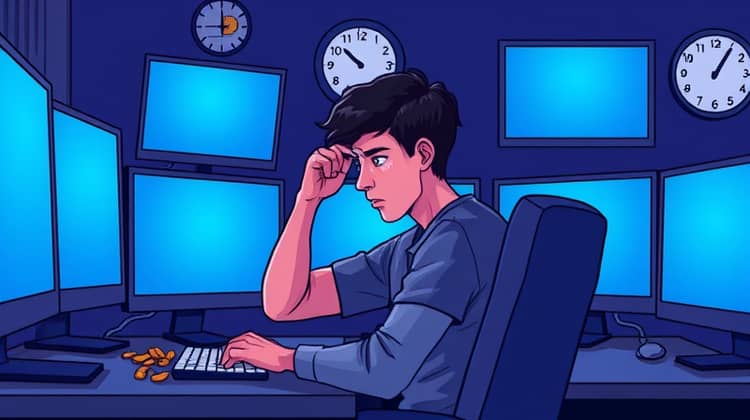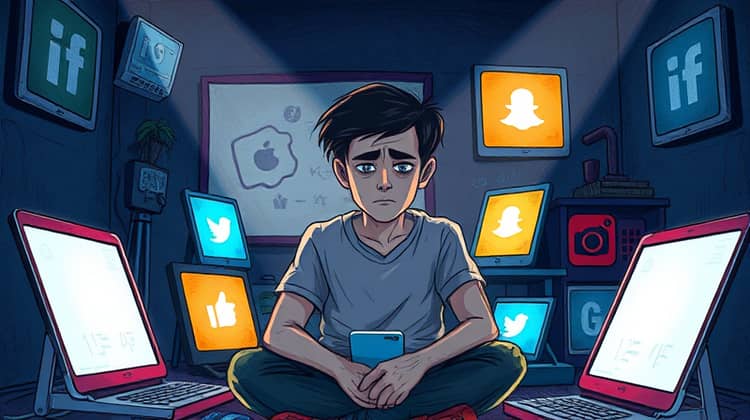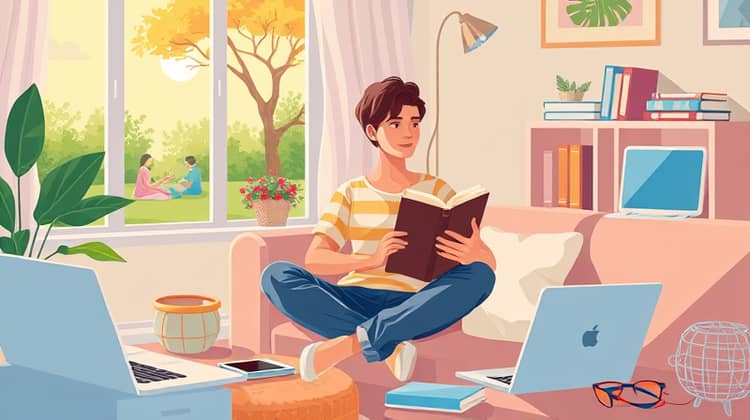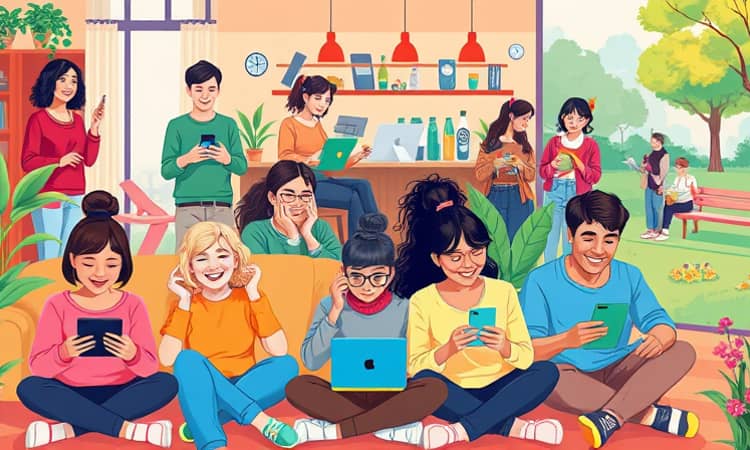In the digital age, screen time has become a significant part of our daily routines, influencing various aspects of our lives. From smartphones and tablets to laptops and televisions, the amount of time we spend in front of screens has been steadily increasing, leading to growing concerns about its effects on our health.
Understanding the impact of screen time on both physical and mental health is essential for promoting a balanced lifestyle. This article will explore the various health implications associated with excessive screen time, particularly its effects on physical health, mental well-being, and the younger population.
Physical Health Effects

Excessive screen time can adversely impact physical health, leading to various ailments that affect overall well-being. One of the most common physical issues associated with prolonged screen use is eye strain, often referred to as computer vision syndrome, which can cause discomfort and long-term vision problems.
Moreover, spending long periods sitting while using devices can lead to a sedentary lifestyle, which is linked to obesity, heart disease, and other chronic health conditions. The lack of movement and physical activity can result in weakened muscles, poor posture, and a general decline in physical health.
- Increased risk of obesity
- Eye strain and discomfort
- Poor posture and back pain
- Increased risk of cardiovascular diseases
- Higher likelihood of developing chronic pain issues
Mental Health Effects

Beyond physical health concerns, excessive screen time can also lead to significant mental health challenges. Studies have shown that increased screen use, particularly on social media, can contribute to feelings of anxiety, depression, and loneliness. This digital interaction often replaces face-to-face communication, which is vital for emotional well-being.
Moreover, the constant bombardment of information and stimuli from screens can overwhelm the mind, leading to distraction and reduced attention spans. This can make it difficult for individuals to focus, engage in meaningful activities, and maintain healthy interpersonal relationships.
- Increased feelings of anxiety and depression
- Lower self-esteem due to social comparisons
- Disrupted sleep patterns and insomnia
- Reduced attention spans and focus
- Greater feelings of loneliness and isolation
Effects on Children and Teens

Children and teenagers are particularly vulnerable to the effects of excessive screen time, as their developing brains and bodies are influenced greatly by their environment. High levels of screen exposure can hinder their social skills and emotional development, potentially leading to difficulties in establishing relationships.
Moreover, the content consumed through screens can have a profound impact on young minds, shaping their worldview and behaviors. It's crucial for parents and guardians to monitor and manage screen time to ensure that children find a healthy balance between digital and real-life interactions.
- Delayed social skills development
- Increased risk of behavioral issues
- Higher chance of mental health problems
- Poor academic performance due to distraction
- Exposure to inappropriate content
Balancing Screen Time and Health

Finding a balance between screen time and health is essential for maintaining overall well-being. Setting clear boundaries on screen usage can help individuals of all ages enjoy the benefits of technology while minimizing its adverse effects. It is important to carve out designated screen-free times in one's daily routine to encourage physical activity and face-to-face interactions.
Encouraging outdoor play, hobbies, and social gatherings can promote a healthier lifestyle, proving that life offline can be just as vibrant and fulfilling. Educators and parents can work together to develop guidelines that help children and teens establish healthy screen habits that prioritize their physical and mental health.
Conclusion

In conclusion, while screens are an integral part of modern life, it's important to be mindful of the time spent in front of them. By recognizing the various physical and mental health effects associated with excessive screen time, individuals can take proactive measures to protect their well-being.
Ultimately, promoting a balanced approach to screen usage will not only enhance personal health but also foster healthier relationships and social connections in our increasingly digital world. Embracing a lifestyle that values both technology and personal well-being is key to thriving in today’s society.














